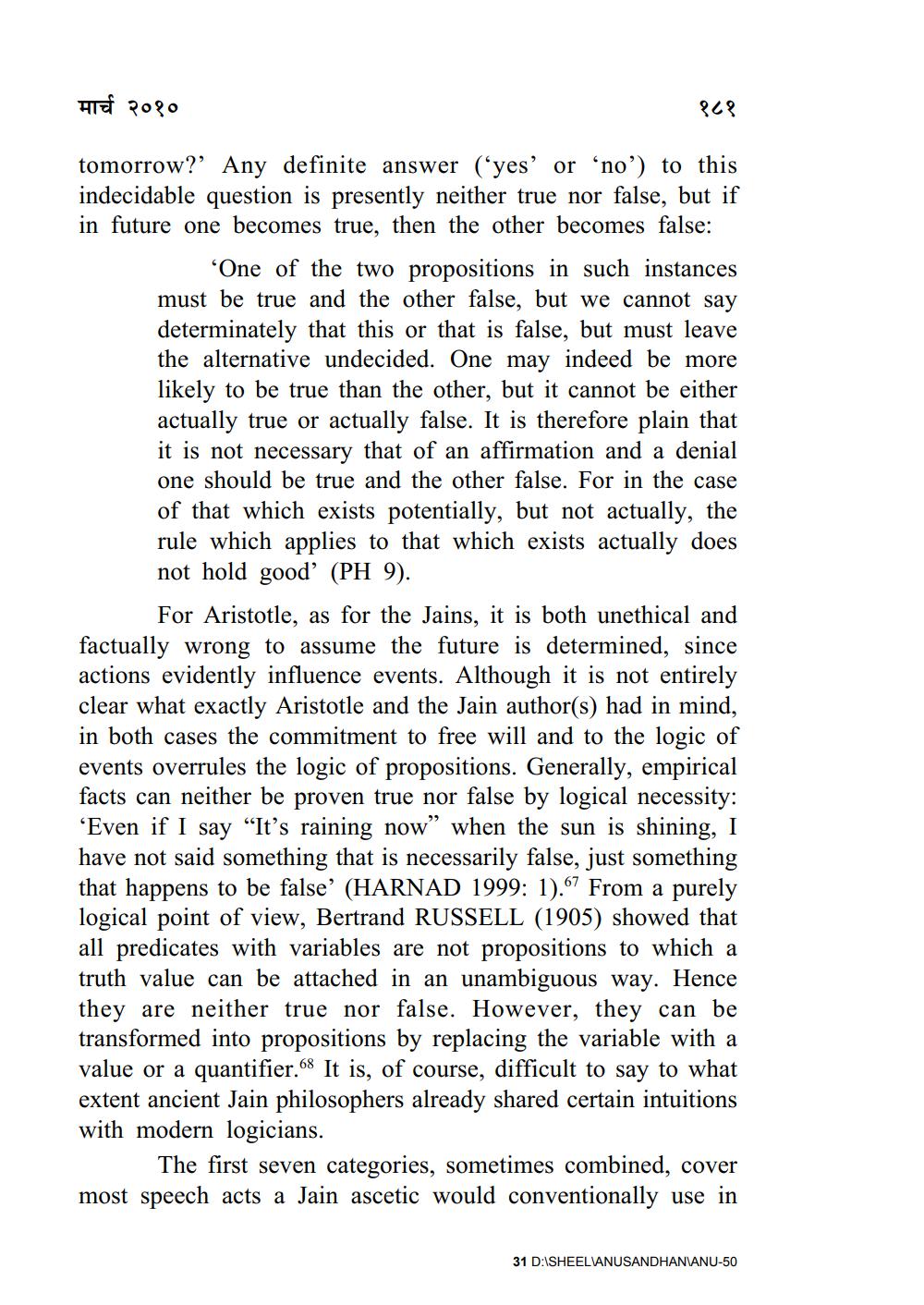________________
मार्च २०१०
१८१
tomorrow?' Any definite answer ('yes' or 'no') to this indecidable question is presently neither true nor false, but if in future one becomes true, then the other becomes false:
'One of the two propositions in such instances must be true and the other false, but we cannot say determinately that this or that is false, but must leave the alternative undecided. One may indeed be more likely to be true than the other, but it cannot be either actually true or actually false. It is therefore plain that it is not necessary that of an affirmation and a denial one should be true and the other false. For in the case of that which exists potentially, but not actually, the rule which applies to that which exists actually does not hold good' (PH 9).
For Aristotle, as for the Jains, it is both unethical and factually wrong to assume the future is determined, since actions evidently influence events. Although it is not entirely clear what exactly Aristotle and the Jain author(s) had in mind, in both cases the commitment to free will and to the logic of events overrules the logic of propositions. Generally, empirical facts can neither be proven true nor false by logical necessity: 'Even if I say “It's raining now” when the sun is shining, I have not said something that is necessarily false, just something that happens to be false' (HARNAD 1999: 1).67 From a purely logical point of view, Bertrand RUSSELL (1905) showed that all predicates with variables are not propositions to which a truth value can be attached in an unambiguous way. Hence they are neither true nor false. However, they can be transformed into propositions by replacing the variable with a value or a quantifier.68 It is, of course, difficult to say to what extent ancient Jain philosophers already shared certain intuitions with modern logicians.
The first seven categories, sometimes combined, cover most speech acts a Jain ascetic would conventionally use in
31 D:\SHEELANUSANDHAN ANU-50




